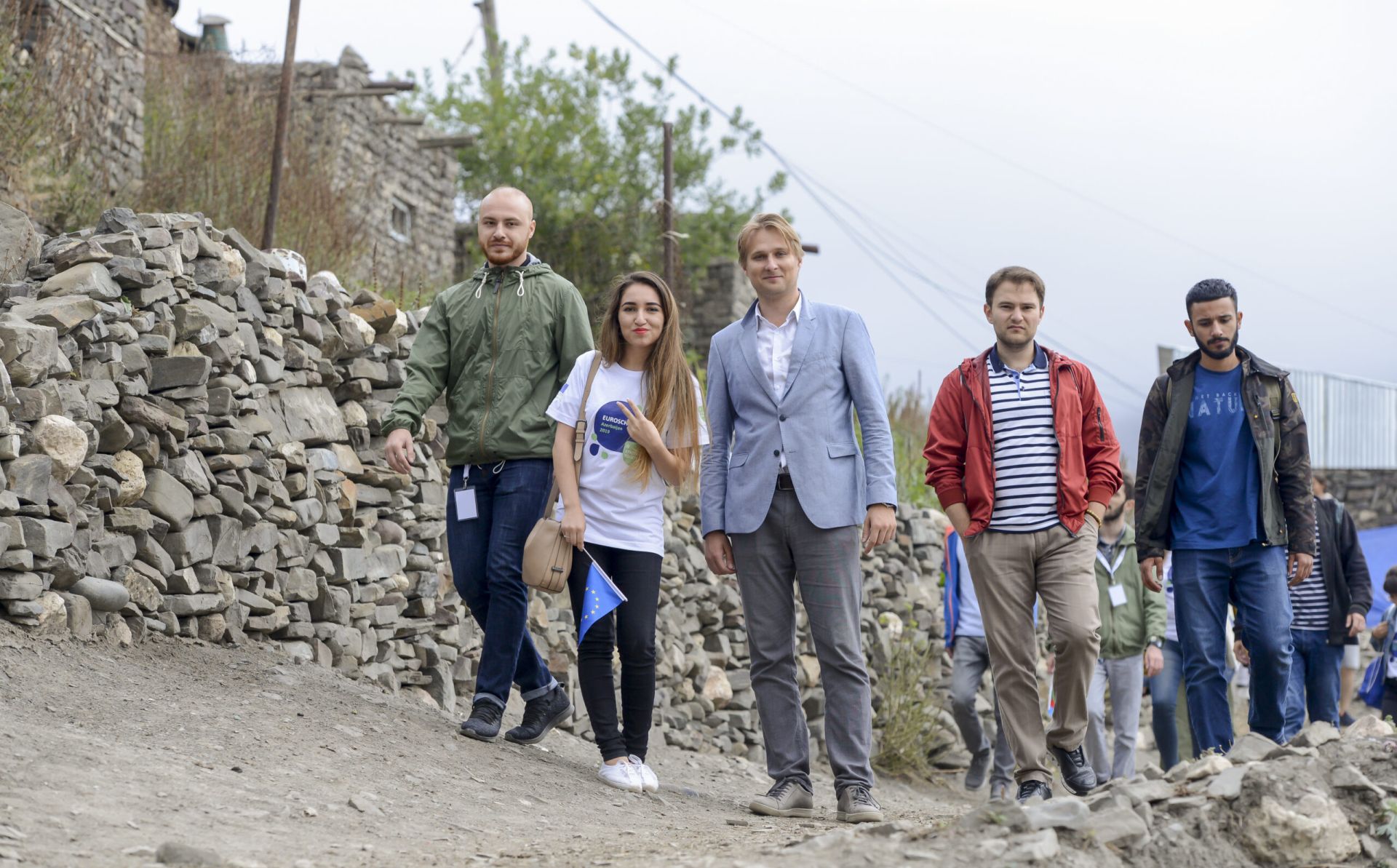
Azerbaijani students becoming more aware of energy efficiency and sustainable energy
For the third year in a row, energy training classes are a part of the summer EuroSchool programme in Azerbaijan. And for a good reason: the interest in effective management of the energy sector is becoming increasingly tangible among the younger generation.
Trainer Vitali Hiarlouski from the Energy Charter (one of the EU partner in implementing the EU4Energy Programme), has been teaching his class at the summer EuroSchool for three years. He notes that the level of participants increases each year.
“If at first I paid more attention to the interpretation of energy concepts and connections between them, now our session is being held in the format of a debate. Many of the participants have their own active stance on many issues, and we get interesting debates,” he says.
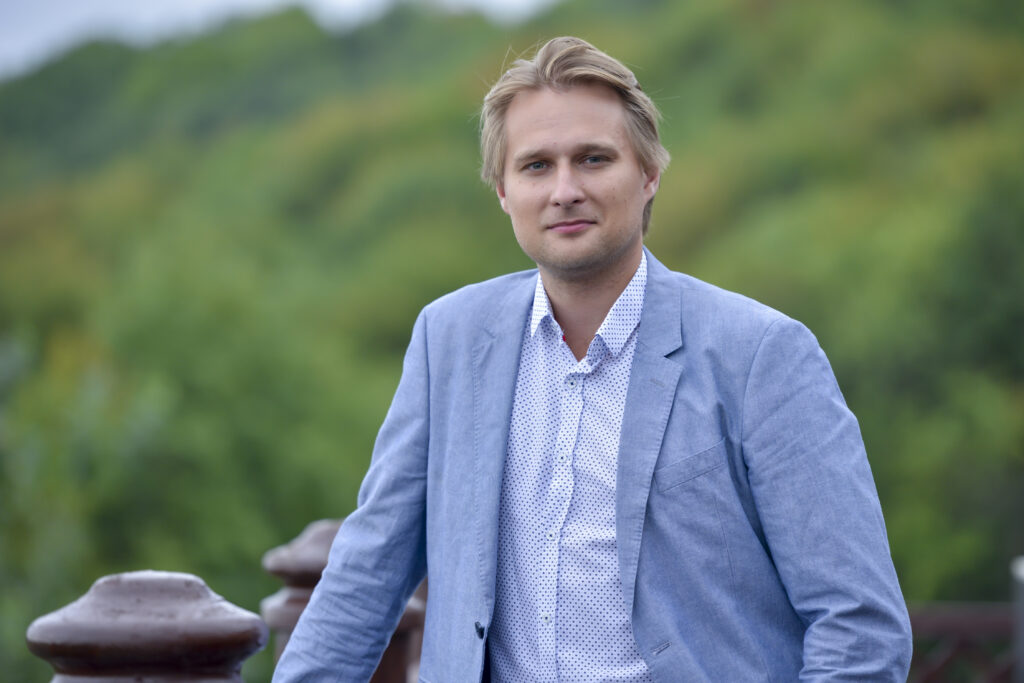 EU4Energy trainer Vitali Hiarlouski
EU4Energy trainer Vitali Hiarlouski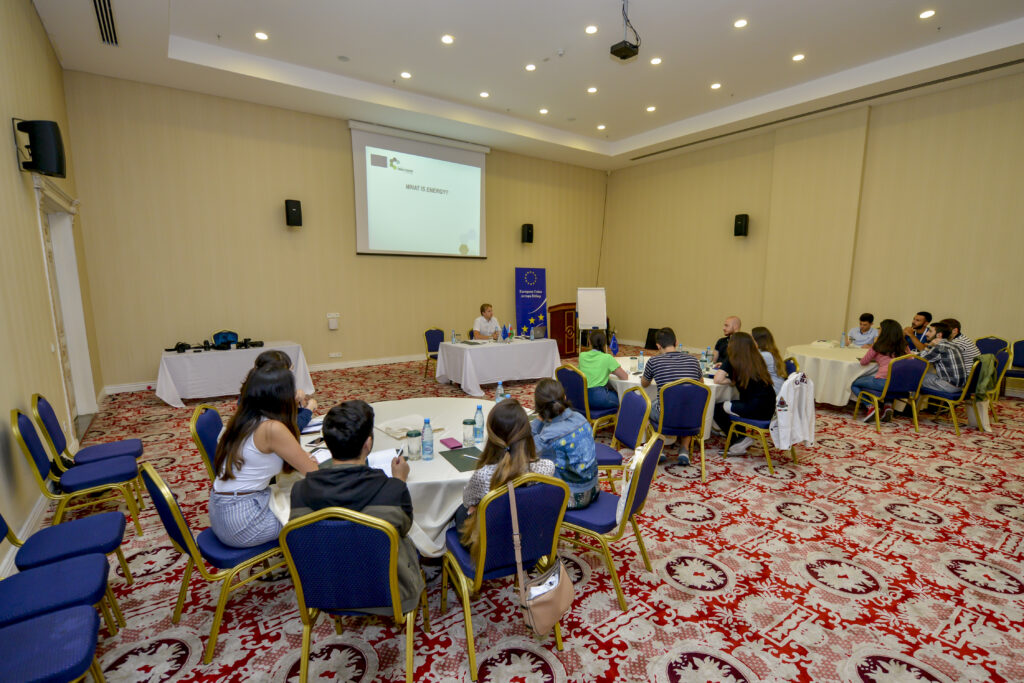 EU4Energy class during EuroSchool in Azerbaijan
EU4Energy class during EuroSchool in Azerbaijan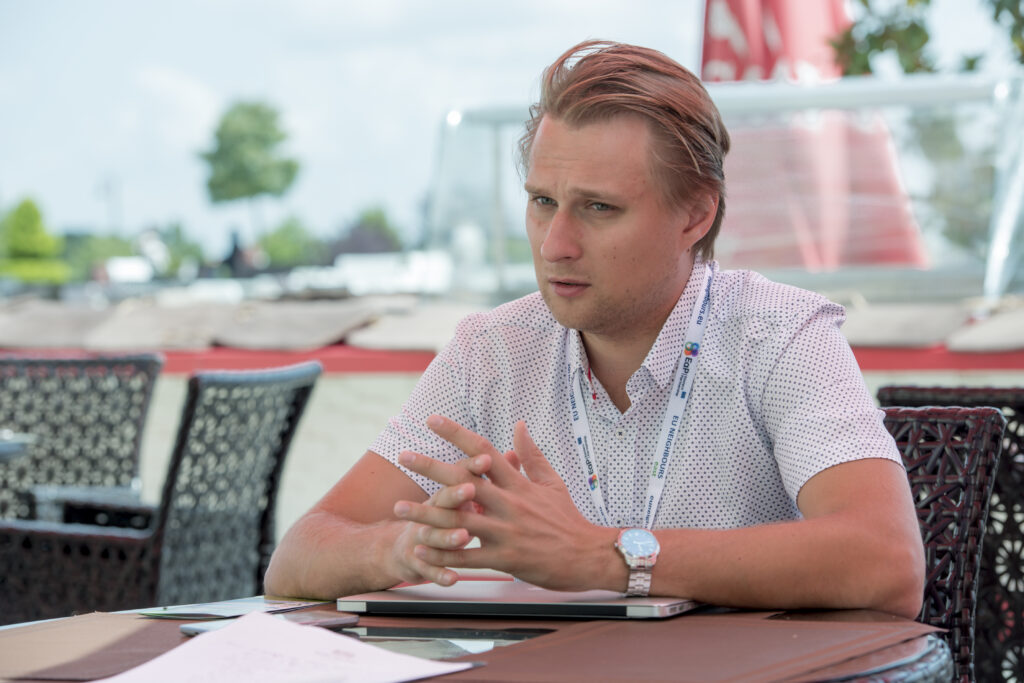 EU4Energy trainer Vitali Hiarlouski
EU4Energy trainer Vitali Hiarlouski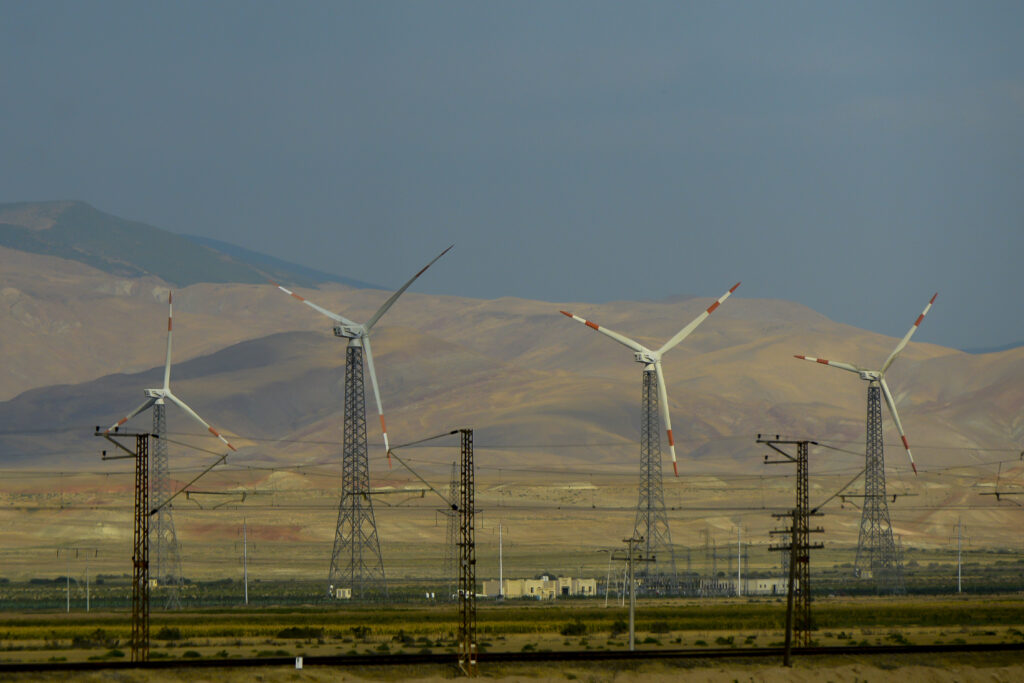 Wind farm on the Baku-Guba highway, Azerbaijan
Wind farm on the Baku-Guba highway, Azerbaijan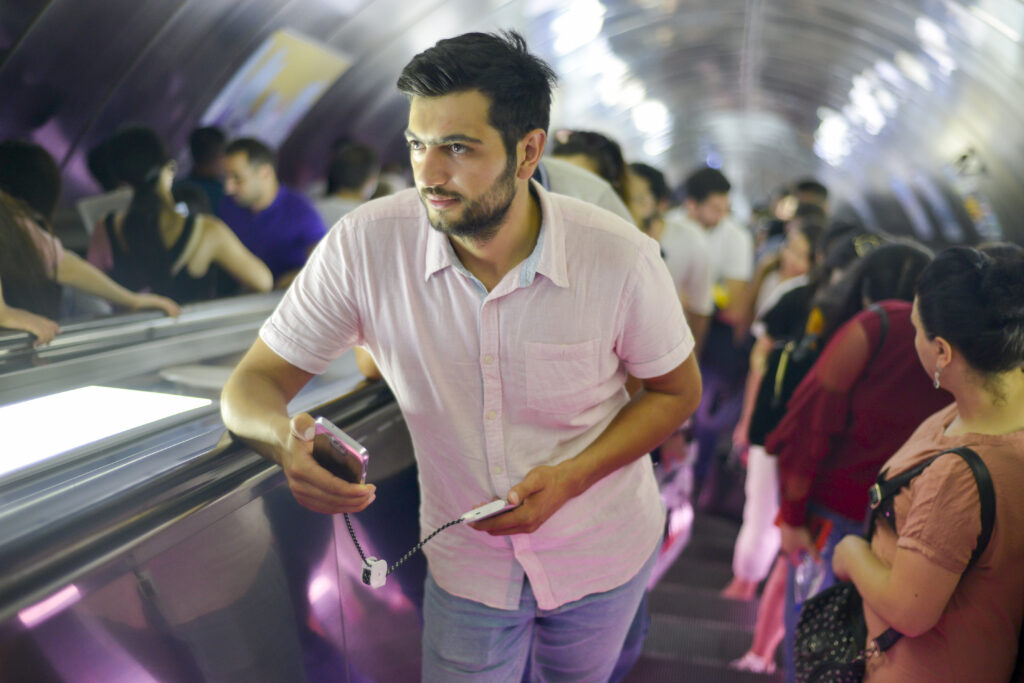 Metro in Baku, Azerbaijan
Metro in Baku, Azerbaijan
At the end of August the EuroSchool in Azerbaijan brought together 15 young participants and several coaches from Azerbaijan and the EU. The fourth year of summer school took place in the picturesque Guba region. The summer-school is organised by the Delegation of the EU in Azerbaijan, and supported by communication projects EU Neighbours and EU4Energy.
Sustainable energy development is one of the main topics that Vitali touches on during his presentation. The EU supports reforming the energy sector and the development of the sustainable energy policies in the framework of the EU4Energy Programme with a total budget of €21 million.
“EU4Energy is the link that brings everything together,” says Vitali.
After two-and-a-half years of the programme, Azerbaijan has already developed a new draft law on energy efficiency, which is being considered by the Administration of the President. This document prescribes the preparation of the National Action Plan and aims to introduce a clear mechanism for the functioning of this multi-faceted area.
At the same time, Azerbaijani specialists are getting acquainted with the nuances of introducing energy efficiency standards.
Azerbaijan’s economy is based on the oil and gas sector and is one of the countries with the highest energy self-sufficiency: the volume of energy production is four times higher than the domestic demand.
However, domestic energy consumption is much higher in Azerbaijan than in European countries, which means that large volumes of energy are wasted. In particular, losses in electric networks remain high.
Mehradzh Aliyev, a 22-year-old summer-school participant interested in the subject of energy, believes that Azerbaijan is now faced with the task of managing its energy reserves as efficiently as possible in order to preserve them for future generations.
“Today we have easy access to energy resources; however, this does not mean that it will be so in ten years. Therefore, we must learn how to use them effectively now, without wasting time,” says Mehradzh Aliyev, one of the Young European Ambassadors from Azerbaijan.
22-year-old participant, Jeykhuna Sultanova, says that since the energy sector is the engine of economic growth of Azerbaijan, it is extremely important to ensure the country’s energy security. She sees energy efficiency and sustainable development of the entire energy sector as the key factors of such security.
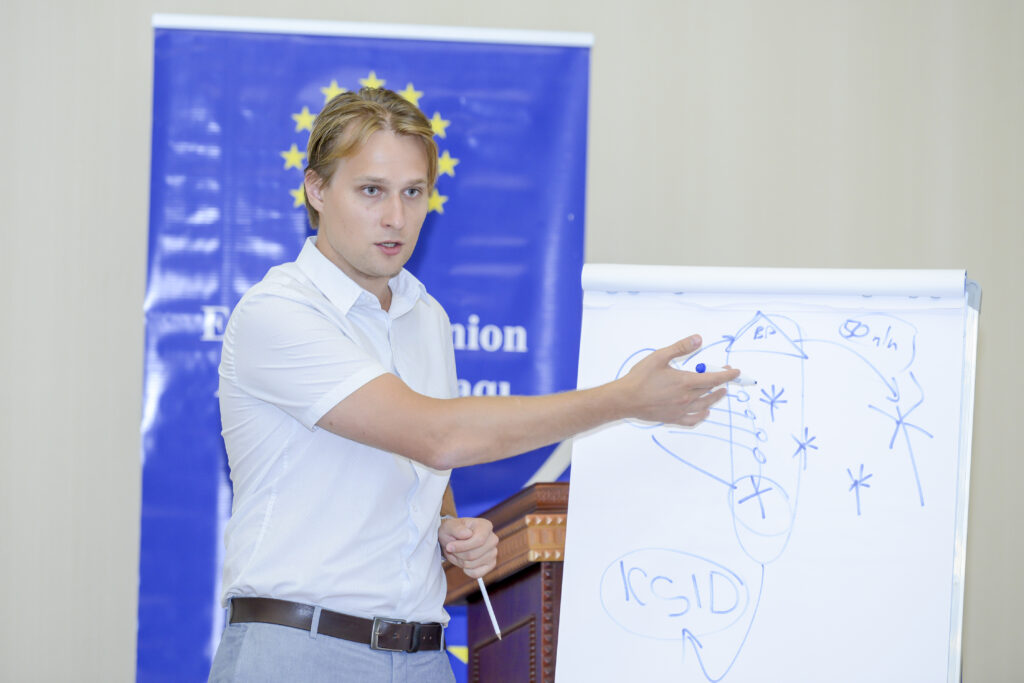 EU4Energy trainer Vitali Hiarlouski during the EuroSchool in Azerbaijan
EU4Energy trainer Vitali Hiarlouski during the EuroSchool in Azerbaijan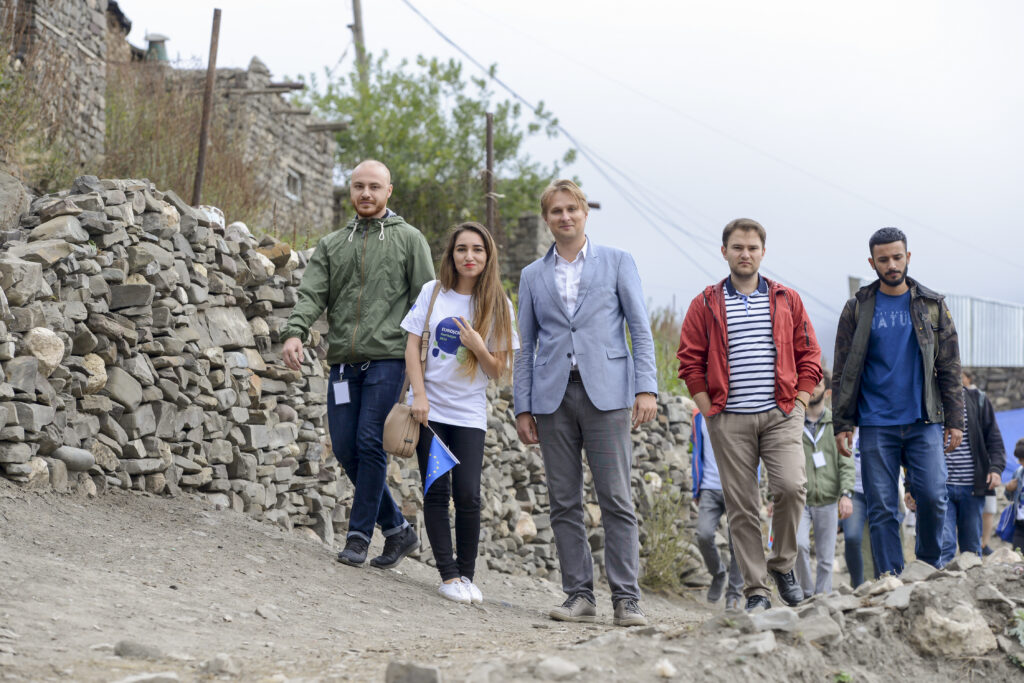 EU4Energy trainer Vitali Hiarlouski with participants at the EuroSchool in Azerbaijan
EU4Energy trainer Vitali Hiarlouski with participants at the EuroSchool in Azerbaijan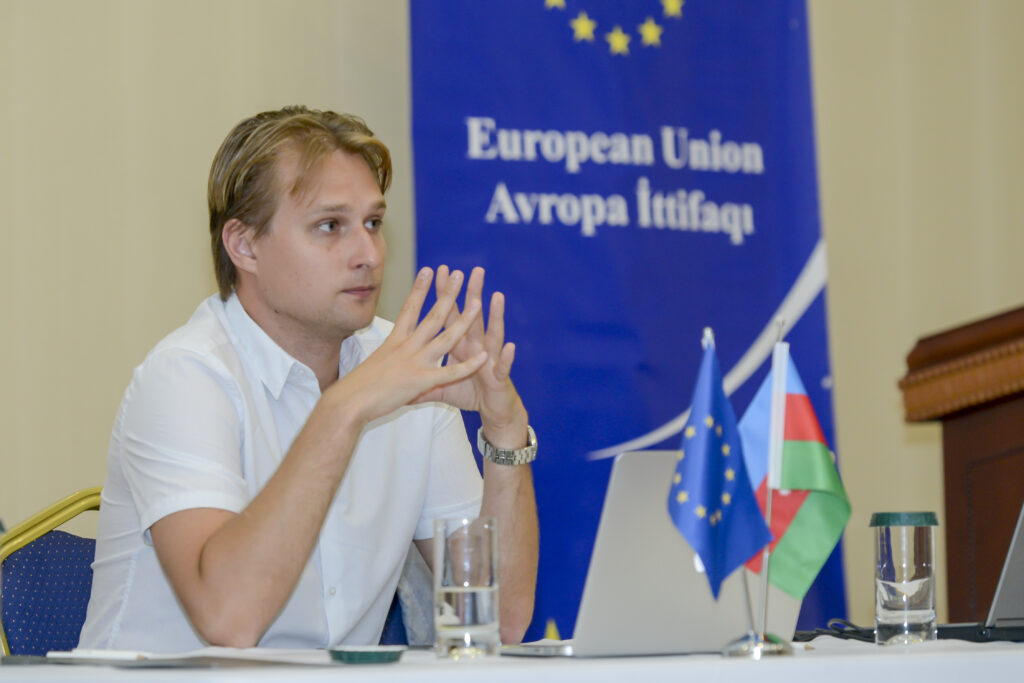 EU4Energy trainer Vitali Hiarlouski during the EuroSchool in Azerbaijan
EU4Energy trainer Vitali Hiarlouski during the EuroSchool in Azerbaijan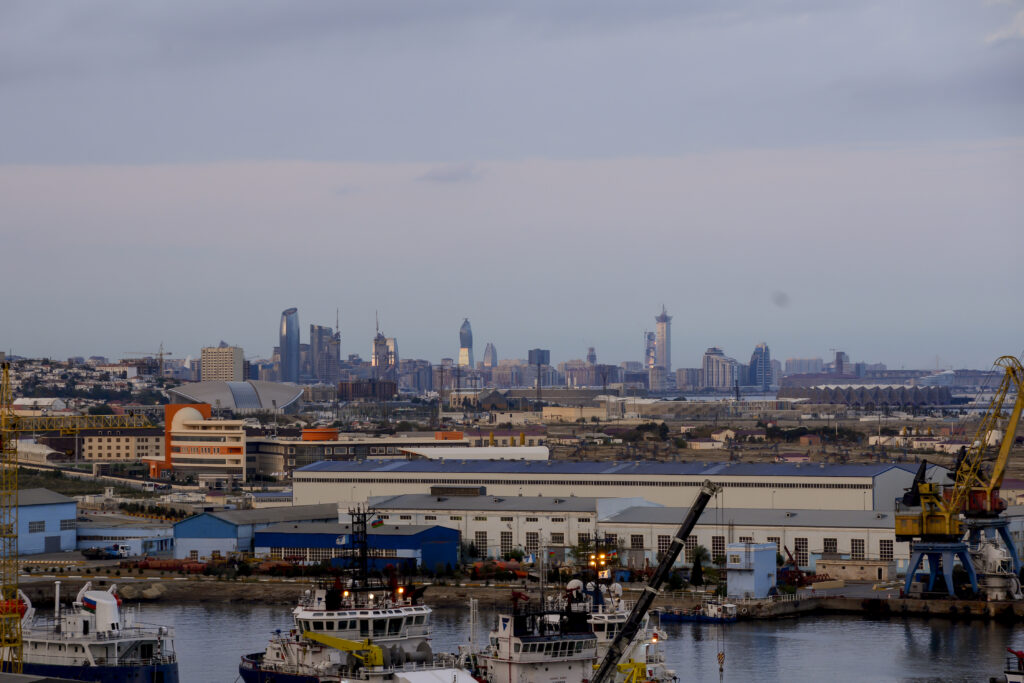 Baku, Azerbaijan
Baku, Azerbaijan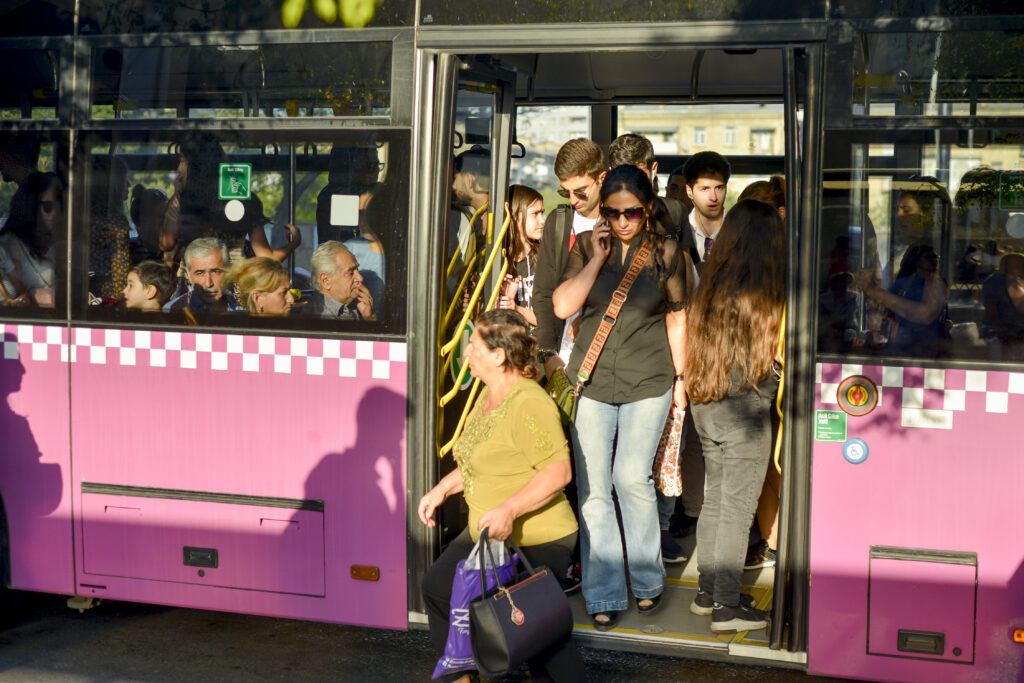 Baku, Azerbaijan
Baku, Azerbaijan
EU4Energy in Azerbaijan
Vitali also tells students of the summer EuroSchool about the role of the EU in assisting Azerbaijan on the path to a sustainable energy policy under the EU4Energy.
Within the framework of the EU’s EU4Energy Programme, the Energy Charter Secretariat experts helped to develop the country’s first draft law on energy efficiency, which was submitted for consideration to the Cabinet of Ministers of Azerbaijan in November 2018 and should be adopted in the near future.
Thanks to the EU support, the energy experts have assisted Azerbaijani specialists in providing support on the preliminary steps of the development of a long-term energy strategy that includes energy development scenarios until 2030 and 2050, as well as the possibility of using renewable energy sources and introducing energy efficiency. They also offer support to the Government of Azerbaijan in preparing models to support the long term Energy Strategy 2050.
“We also organised nine major information events in Azerbaijan, involving not only the Ministry of Energy, but also other governmental departments. In total, about 300 people were involved,” Vitali says, referring to a brochure prepared by the Secretariat (in Azerbaijani).
In the long run, developing the energy sector will lead to less energy being wasted on a national scale. This would provide consumers with more reliable supplies and new jobs will appear in this sector.
Energy Efficiency in Practice
Politics is politics and a young, curious mind is always interested in how to put knowledge into practice. Therefore, Vitali teaches young people what it means to be an ‘energy-efficient citizen’ using European countries as an example.
He explains to the students that the higher the class of the energy class of all of the equipment in houses and apartments is, the lower its energy consumption. Governments in EU countries encourage citizens to purchase energy-efficient equipment in several different ways, for example: in the form of a discount on goods, tax deductions, etc. The state also supports the process of thermal insulation of residential buildings.
There are already people conscious of this among Azerbaijani youth. 20-year-old summer-school student Fidan Veliyeva believes that everyone can make a small contribution to the state’s efforts to efficiently use the available energy resources.
Fidan tries to contribute to energy efficiency in her everyday life: at home she does not leave lights and electrical appliances turned on unless she needs to, she turns off the gas after cooking and even switches to a table lamp when working at a computer. All lamps in the house are energy-saving.
The contribution to the development and education of youth is hard to overestimate, says Vitali. Today’s adolescents and young people will be heads of companies and government institutions tomorrow. Strategic decision-making will depend on these people. What is sown in their young hearts today, will guide their actions in adulthood.
Author: Yelena Ostapenko
MOST READ
SEE ALSO

No, time is not on Russia‘s side
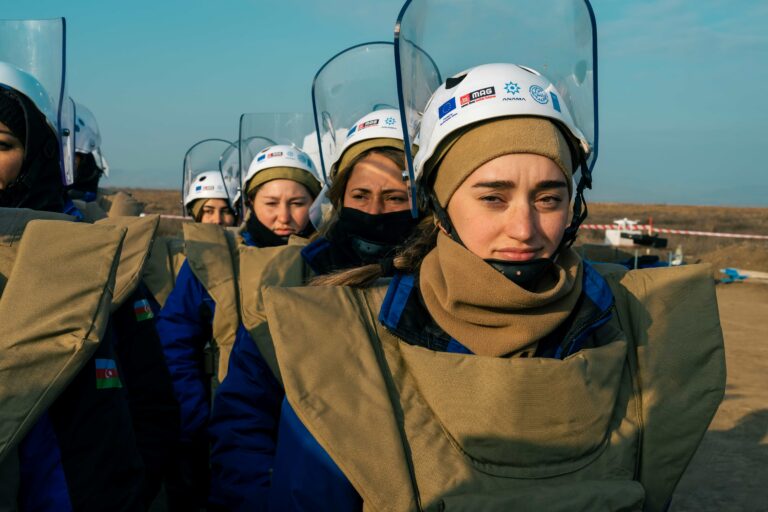
I have no regrets: the Azerbaijani women trained to clear mines
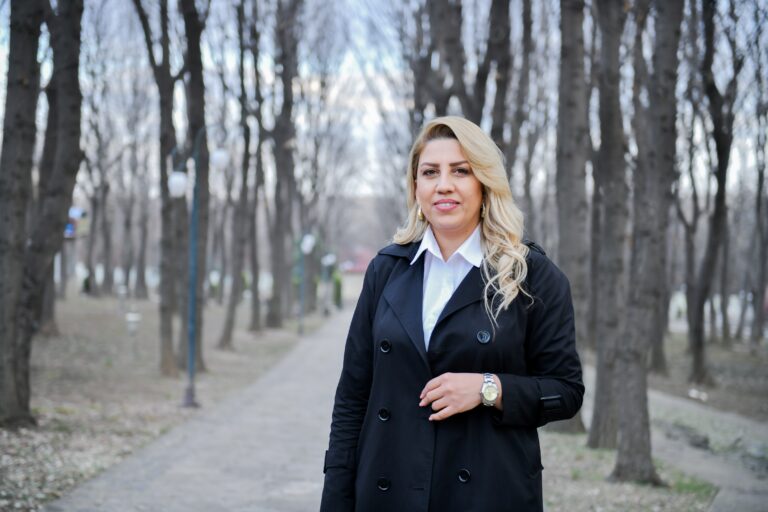
Turning a hobby into business: how Vusala Akhmadova from Tovuz helps women and children develop

Be one step ahead of a hacker: check simple cybersecurity tips!
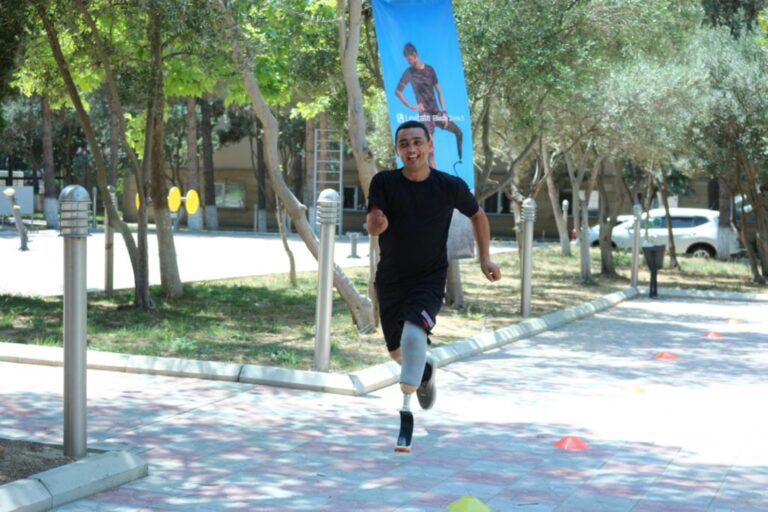
A chance for a better life: restoring justice for people with disabilities in Azerbaijan
More campaign pages:
Interested in the latest news and opportunities?
This website is managed by the EU-funded Regional Communication Programme for the Eastern Neighbourhood ('EU NEIGHBOURS east’), which complements and supports the communication of the Delegations of the European Union in the Eastern partner countries, and works under the guidance of the European Commission’s Directorate-General for Neighbourhood Policy and Enlargement Negotiations, and the European External Action Service. EU NEIGHBOURS east is implemented by a GOPA PACE-led consortium. It is part of the larger Neighbourhood Communication Programme (2020-2024) for the EU's Eastern and Southern Neighbourhood, which also includes 'EU NEIGHBOURS south’ project that runs the EU Neighbours portal.

The information on this site is subject to a Disclaimer and Protection of personal data. © European Union,







